Special Report
From Socrates to Alan Turing: The Most Famous Poisonings in History
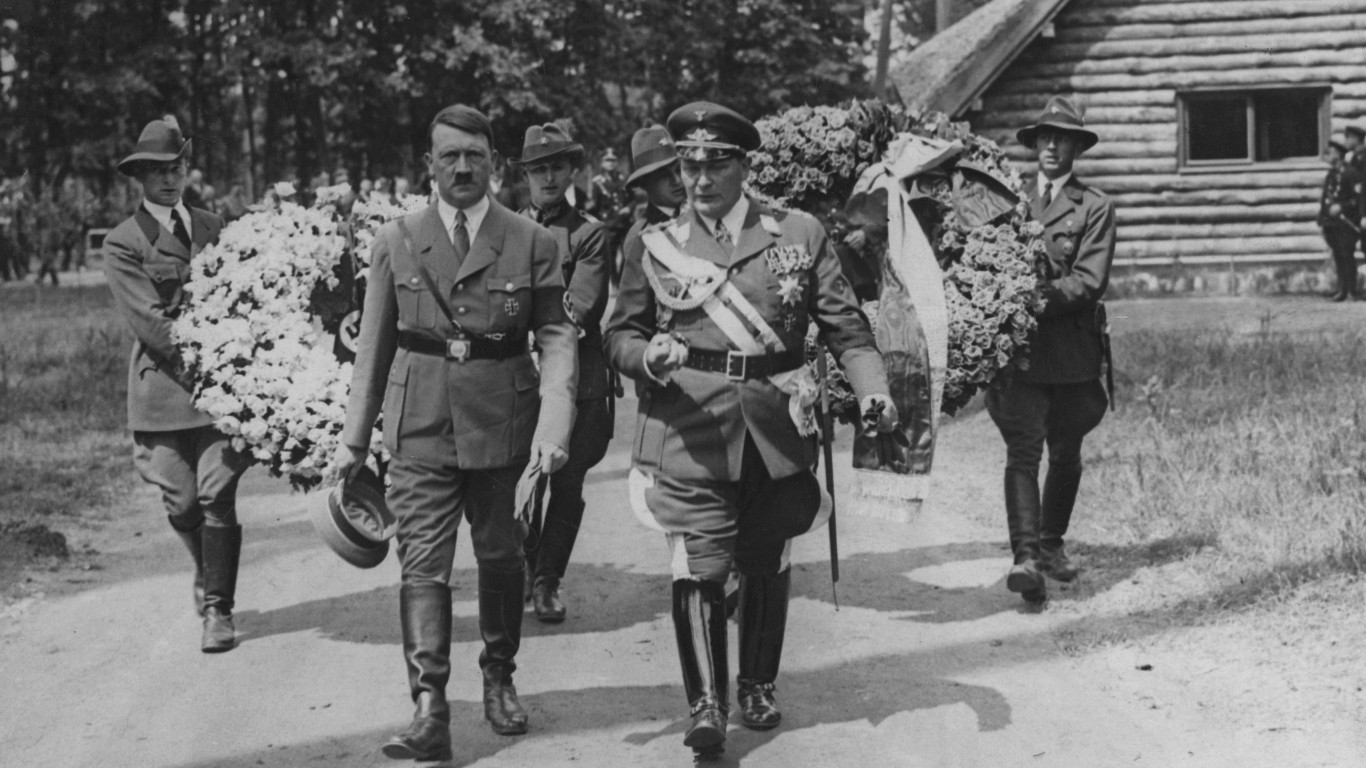
Published:

Arsenic, cyanide, mercury…what do they have in common? These naturally occurring chemical elements and compounds can all be fatal if ingested in large doses. Chemicals found in certain plants (such as water hemlock and nightshade) and some varieties of mushrooms can also cause extreme illness or death if ingested.
These substances – and plenty of others – have been used throughout history as poisons. In antiquity, poisoning was a common way to dispose of a political rival or pesky relative, and people generally got away with it. Without the ability to prove through autopsy that a death was caused by poison, authorities and loved ones alike could only speculate as to the cause of a seemingly healthy person’s sudden demise.
24/7 Tempo has compiled a list of the most famous poisoning deaths in history by reviewing historical accounts of individual poisonings as well as current news articles, using sources including Britannica. Only cases that are generally accepted by historians to have been poisonings were included. Occurrences such as gas leaks and carbon monoxide poisoning have been excluded. Mass poisonings and large scale terror attacks were also excluded, but you can read about some of those horrifying accounts in 17 of the most terrifying cults in history.
An overwhelming majority of these poisonings occurred in governments or royal courts. As far back as the Persian Empire, clashes over royal succession commonly led to poisoning deaths. Ancient China, Greece, Arabia, and Rome all saw high profile political and religious leaders poisoned, cutting their reigns short.
20th-century poisoning victims include Soviet spies who defected to other countries, as well as political dissidents throughout Communist Eastern Europe in the period leading up to World War II. Assassinations of political, religious, and scientific figures were not uncommon in the Soviet Union. Around the end of World War II, several Nazis committed suiсide by poison to avoid capture or sentencing for war crimes.
A few unintended poisonings are listed here, including the tragic death of a film star in 1920 who accidentally ingested a toxic medication containing mercury. (Here are 20 movie and TV stars who died far too young.)

Socrates
> Died: 399 B.C.
After a court trial that found him guilty of impiety and corrupting the youth, the Greek philosopher Socrates was sentenced to death. The method prescribed by Athenian law was to drink poison hemlock, which disrupts nerve impulses to the muscles and eventually kills victims by causing respiratory failure.
[in-text-ad]
Artaxerxes III
> Died: 338 B.C.
Upon becoming king of the first Persian Empire, Artaxerxes III murdered the rest of the royal family in order to secure his role. Unfortunately for him, his chief adviser Bagoas had Artaxerxes poisoned by his own doctor so he could place one of the king’s sons on the throne.
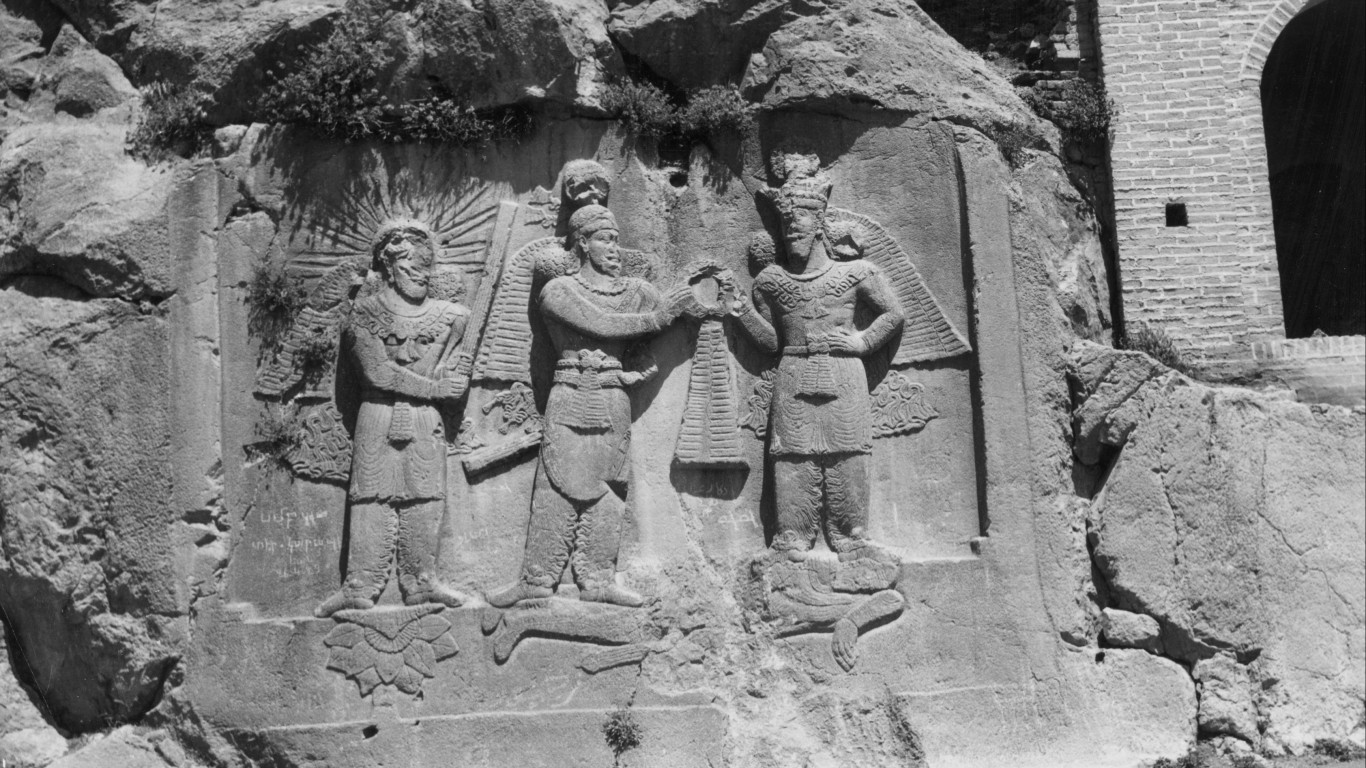
Artaxerxes IV
> Died: 336 B.C.
After his father, King Artaxerxes III, was poisoned by the vizier Bagoas, Arsеs – dubbed Artaxerxes IV – acceded to the throne. When Bagoas found that he could not control the young king, he poisoned Arsеs along with the rest of his family.
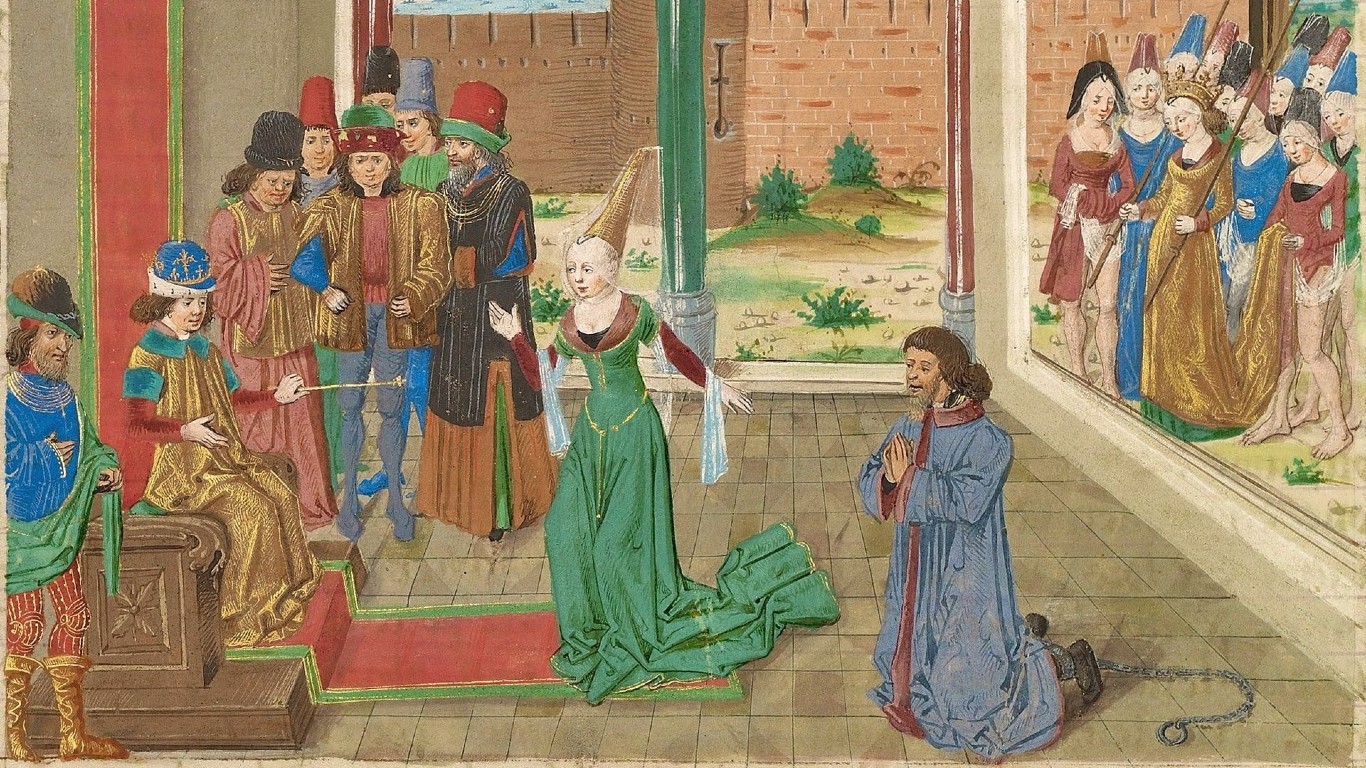
Bagoas
> Died: 336 B.C.
After poisoning King Arsеs, the eunoch and vizier Bagoas placed a cousin of Arsеs, Darius III, on the throne. Becoming disgruntled with Darius, Bagoas attempted to poison him; but Darius forced Bagoas to drink the poison himself, finally putting an end to the conniving courtier.
[in-text-ad-2]
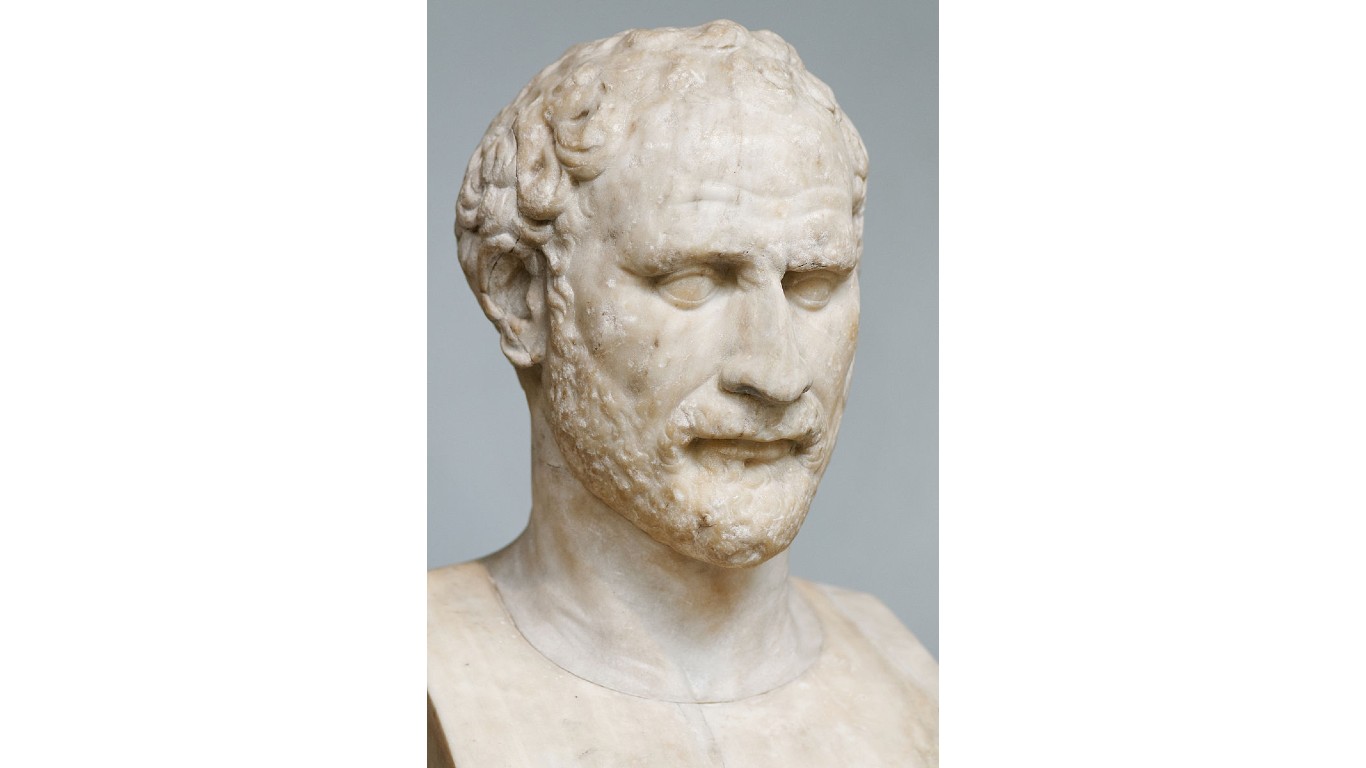
Demosthenes
> Died: 322 B.C.
An Athenian politician who organized a revolt against the new Macedonian king, Alexander the Great, Demosthenes was found and captured by Macedonian forces. To avoid being taken prisoner, he pretended that he wanted to write a final letter to his family, and committed suiсide by drinking poison that was stashed in a reed pen.
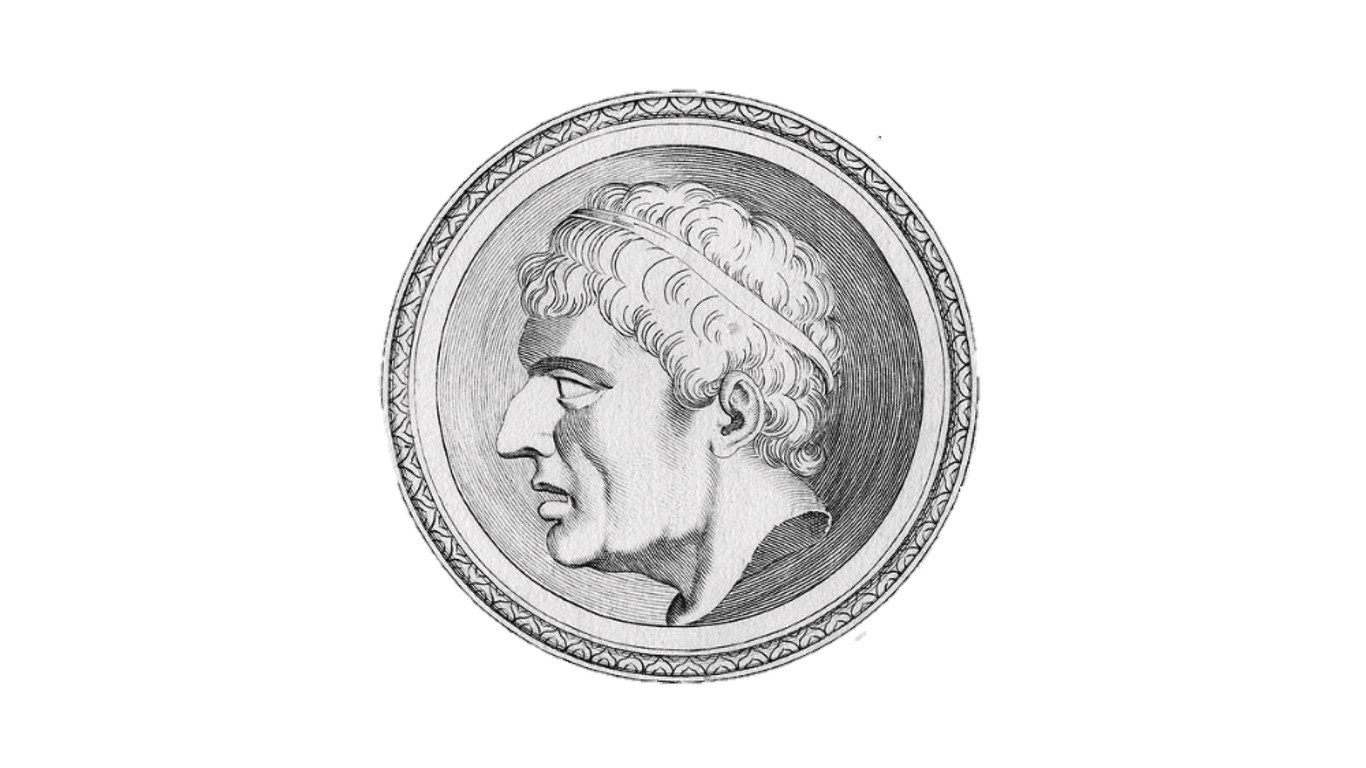
Aratus of Sicyon
> Died: 213 B.C.
A Greek politician and military commander, Aratus was the leader of the city-state Sicyon and a prominent member of the Achaean League. He became a chief advisor to the Macedonian king, Philip V, but as he and the king began to disagree, Aratus’s health mysteriously declined. It is commonly thought that Philip had him poisoned.
[in-text-ad]
Xu Pingjun
> Died: 71 B.C.
When a turn of events led to her husband – a commoner – being named emperor, Xu Pingjun became empress of the Western Han Dynasty. After another courtier decided that her own daughter should be empress, she bribed Empress Xu’s physician into poisoning her with aconite. The ploy was successful and the conspirator’s daughter married the widowed emperor.
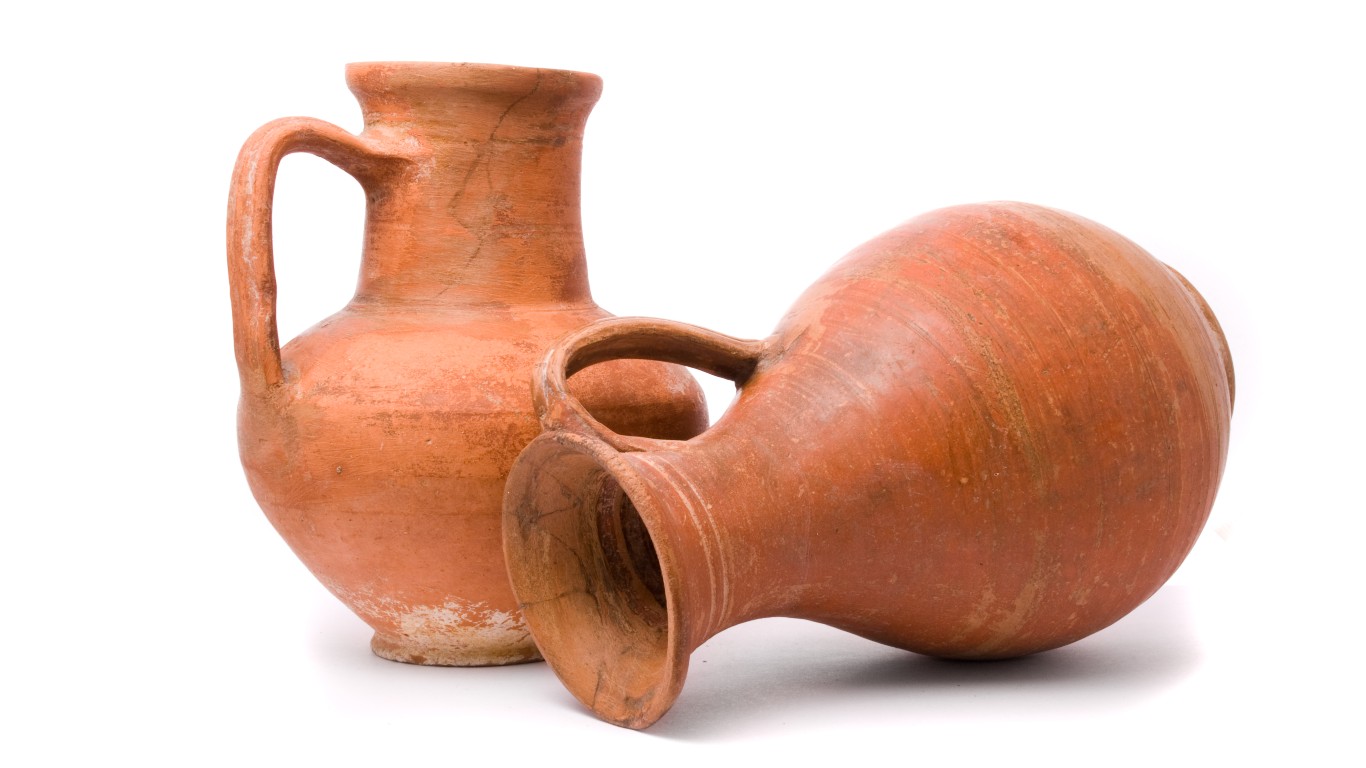
Antipater the Idumaean
> Died: 43 B.C.
Father of Herod I, King of Judea, Antipater is known as the founder of the Herodian Dynasty. As an ally of Julius Caesar, Antipater became a powerful politician until he was assassinated by a rival, who bribed a cup-bearer to poison him.
Drusus Julius Caesar
> Died:23
As the son of Roman Emperor Tiberius, Drusus Julius Caesar was a politician and heir to the Roman Empire. When Sejanus, the commander of the Praetorian guard, became close with Tiberius, a rivalry between Sejanus and Drusus ensued. Drusus died suddenly, and it is believed that Sejanus had him poisoned by his own wife.
[in-text-ad-2]
Emperor Claudius
> Died:54
Claudius became the fourth Roman emperor after the assassination of Caligula. He proved to be a capable ruler and had a son who was due to succeed him. Historians agree that he was poisoned by his fourth wife Agrippina, likely with toxic mushrooms, as she attempted to ensure that her own son (Claudius’s step-son Nero) would ascend the throne.
Emperor Zhi
> Died:146
Although Han Zhi Di was only a child of 7 when he became Emperor, he was an intelligent boy who recognized the dangerous power held by the corrupt military General Liang Ji. It may have been this knowledge that led Liang Ji to poison the young Emperor only a year after his coronation.
[in-text-ad]
Emperor Hui
> Died:304
The reign of Emperor Hui of the Jin Dynasty was fraught with turmoil, including power struggles between his family members and regents, all of whom sought to control the impressionable Emperor. He was finally poisoned by his last regent, Sima Yue, who intended to place his own puppet emperor on the throne.
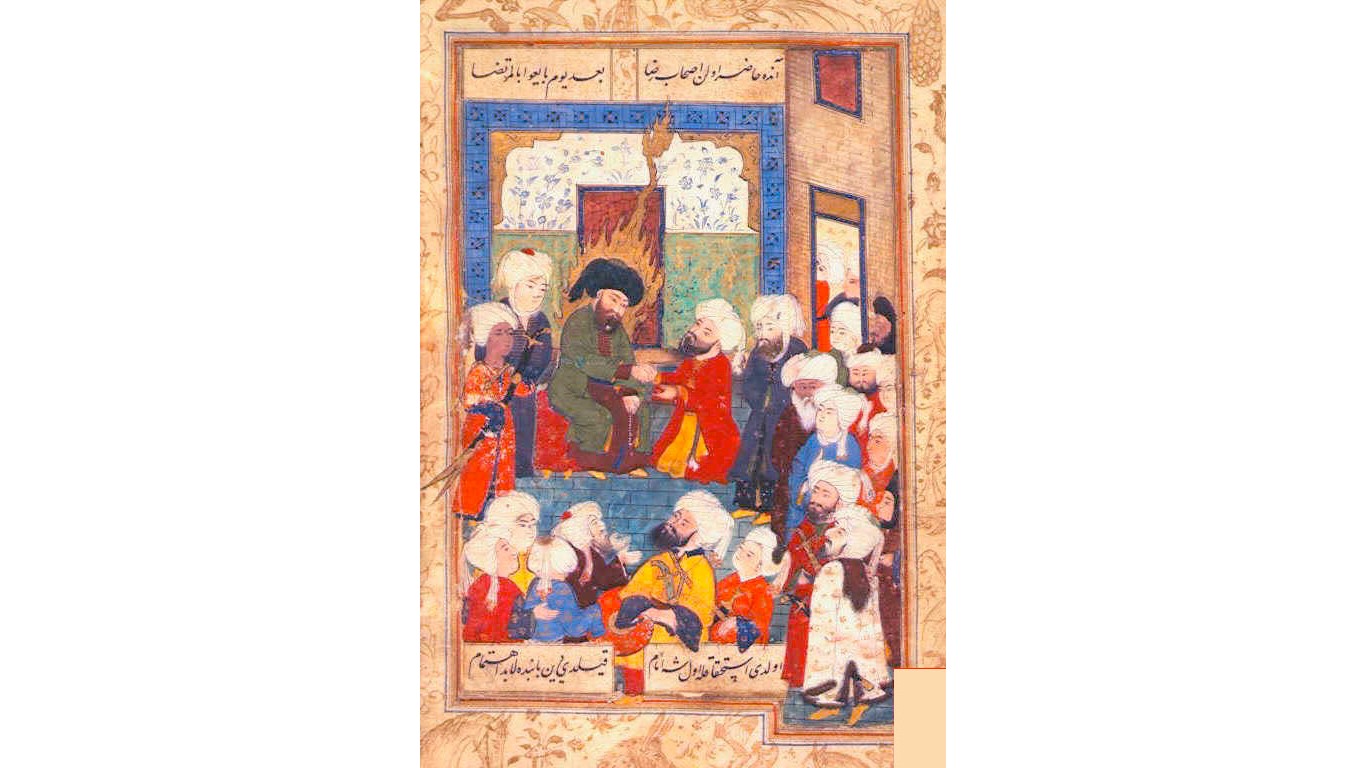
Ali ibn Abi Talib
> Died:661
A relative and companion of the Islamic prophet Muhammad, Ali ibn Abi Talib was a prominent Muslim leader following Muhammad’s death. After much civil war and political upheaval, he was assassinated by a member of a rival sect of Islam called the Khariji. His assassin, the soldier ibn Muljam, struck Ali with a poison coated sword; Ali died two days later.
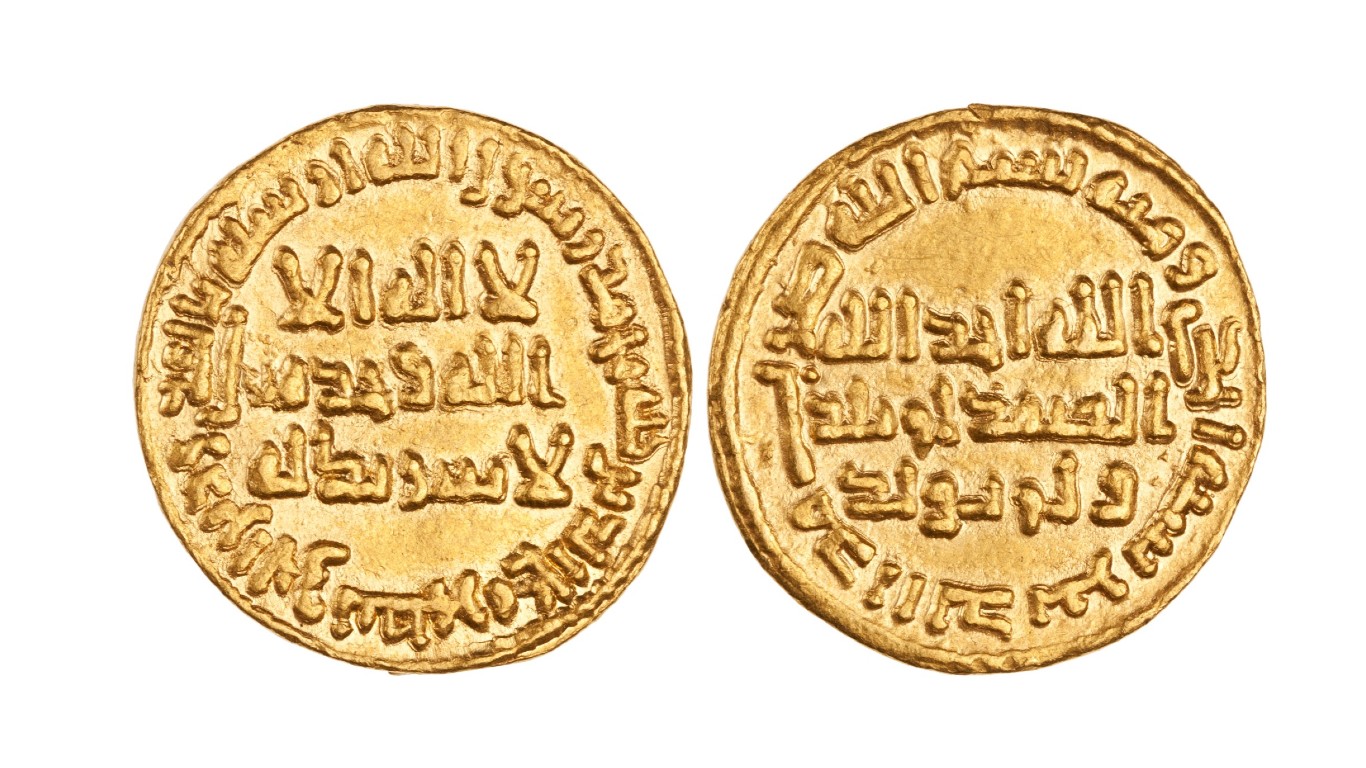
Umar II
> Died:720
Umar bin Abdul Aziz was the eighth caliph of the Umayyad Caliphate, and known as a pious and devout Muslim ruler. He fell ill and died at age 37, allegedly poisoned by one of his slaves, who had been bribed by other members of the ruling family who opposed his rule.
[in-text-ad-2]

Muhammad al-Baqir
> Died:733
Muhammad al-Baqir, the fifth Imam of Shia Islam, was revered for his just leadership. Although there is no consensus on who killed al-Baqir or what their motive was, a commonly accepted story is that he died after being given a poisoned saddle to ride on, possibly by a caliph or family member.
Musa al-Kadhim
> Died:799
The seventh Imam of Shia Islam, Musa al-Kadhim, lived in times of great political divide, during which many Shiite imams were persecuted. He was imprisoned three times and killed during his last imprisonment by being forced to eat poisoned dates.
[in-text-ad]
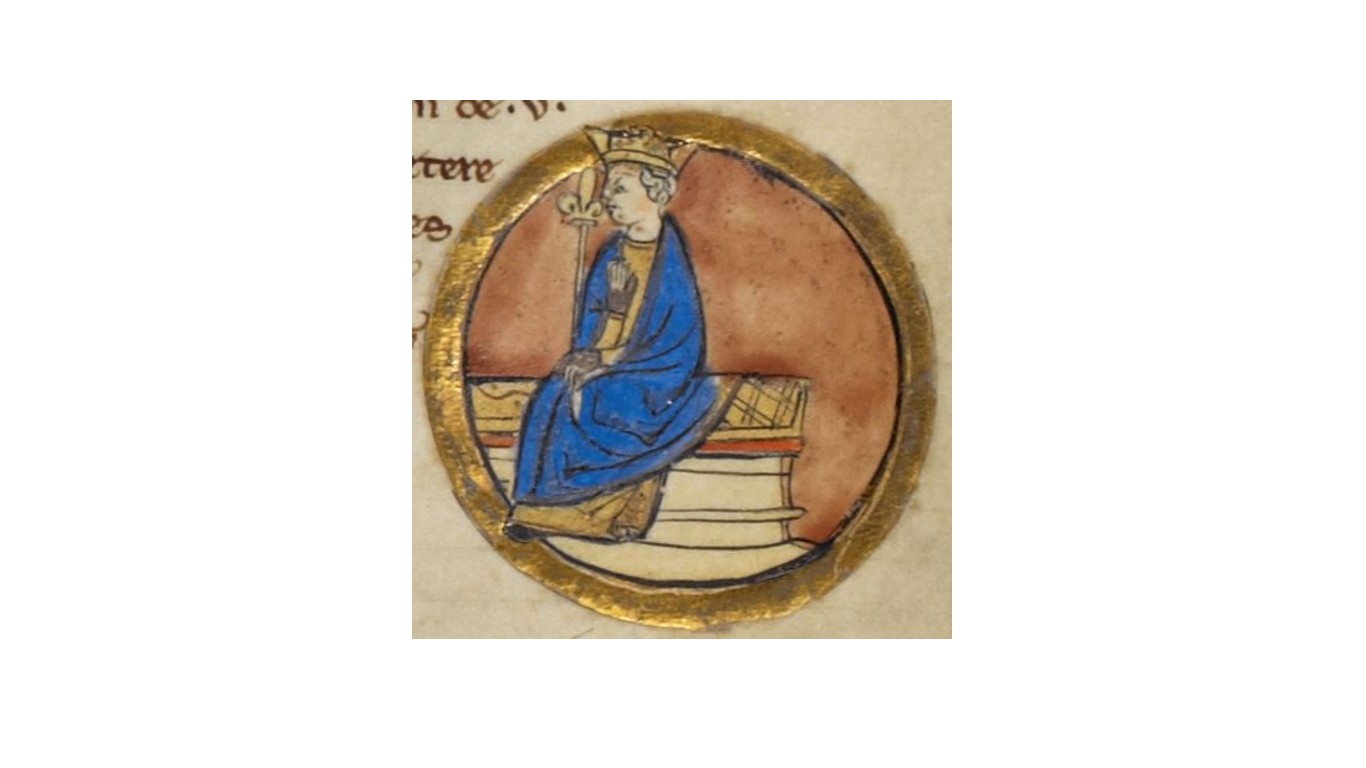
Beorhtric of Wessex
> Died:802
Beorhtric was king of Wessex during the first Viking raids on England. His wife, Eadburh, was ambitious and held much of the ruling power. In 802, Beorhtric is said to have died when he accidentally ingested a poisonous concoction that Eadburh had prepared to use against her political enemies.

Muhammad al-Jawad
> Died:835
Muhammad al-Jawad was the ninth imam of Shia Islam. He became an imam at a young age and died at 25, making him the youngest to die of all Shia imams. He was likely poisoned by his wife on orders from the new caliph, Al-Mu’tasim.
Romanus II
> Died:963
A Byzantine emperor who took the throne at age 21, Romanus II became mysteriously ill and died four years after his coronation. The prevailing theory at the time dictated that he had been poisoned by his wife Theophano, who became regent to her sons upon his death, and quickly remarried a military general.
[in-text-ad-2]
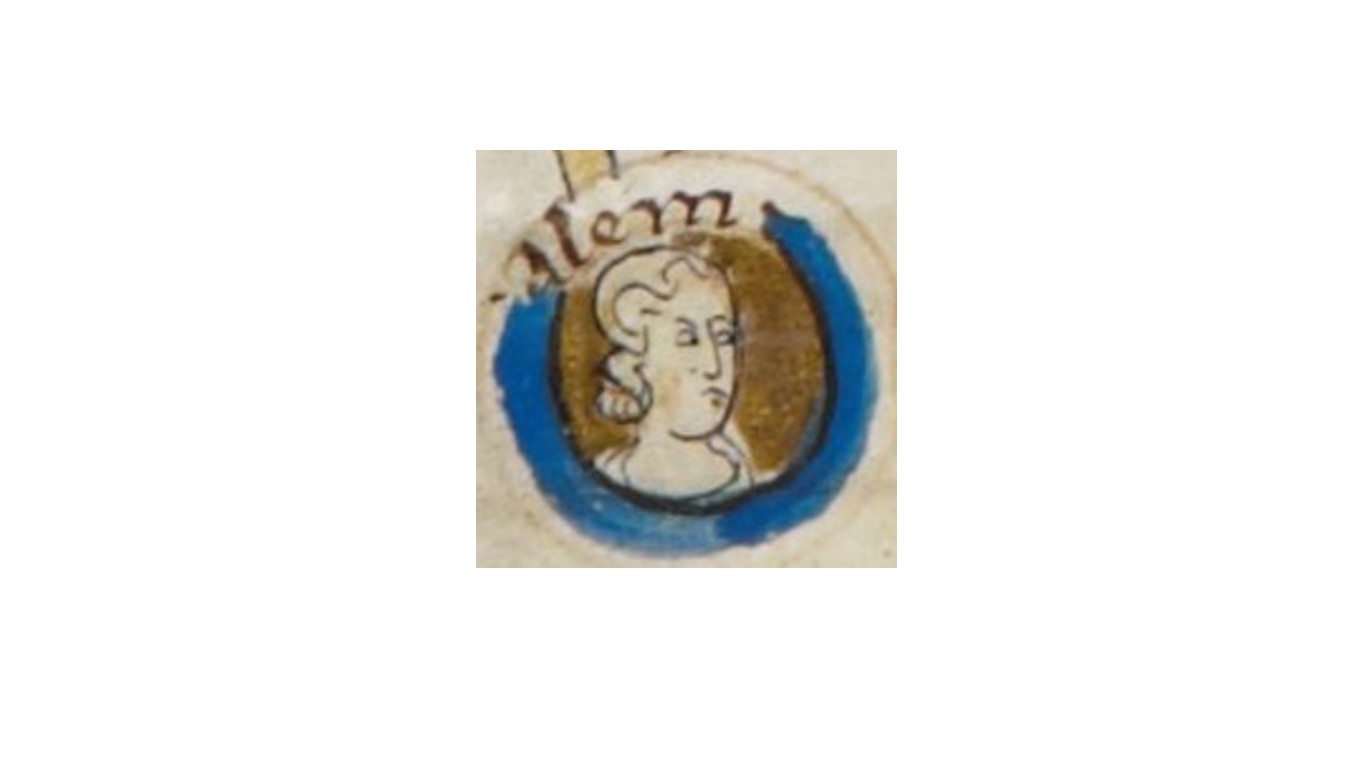
Alan III
> Died:1040
Alan III of Rennes was the Duke of Brittany during a time when Brittany was under Norman control. He engaged in numerous raids on Norman cities. He died mysteriously while besieging a Norman castle, likely poisoned by the Normans.
Constantine II
> Died:1129
Son of Thoros I, lord of Armenian Cicilia, Prince Constantine II was in power for a brief period after the death of his father. Unfortunately, he was soon thrown in prison and poisoned to death, leaving the crown to his uncle Leon.
[in-text-ad]
Alphonse I
> Died:1148
Alfonso Jordan, the Count of Toulouse for 36 years, became a title holder at age 2 upon the death of his father, and throughout his life struggled to maintain control of his lands. He was excommunicated twice by the Catholic Church and was poisoned as he attempted to join the Second Crusade. Among those suspected in his murder was Eleanor of Aquitaine, the Queen of France.
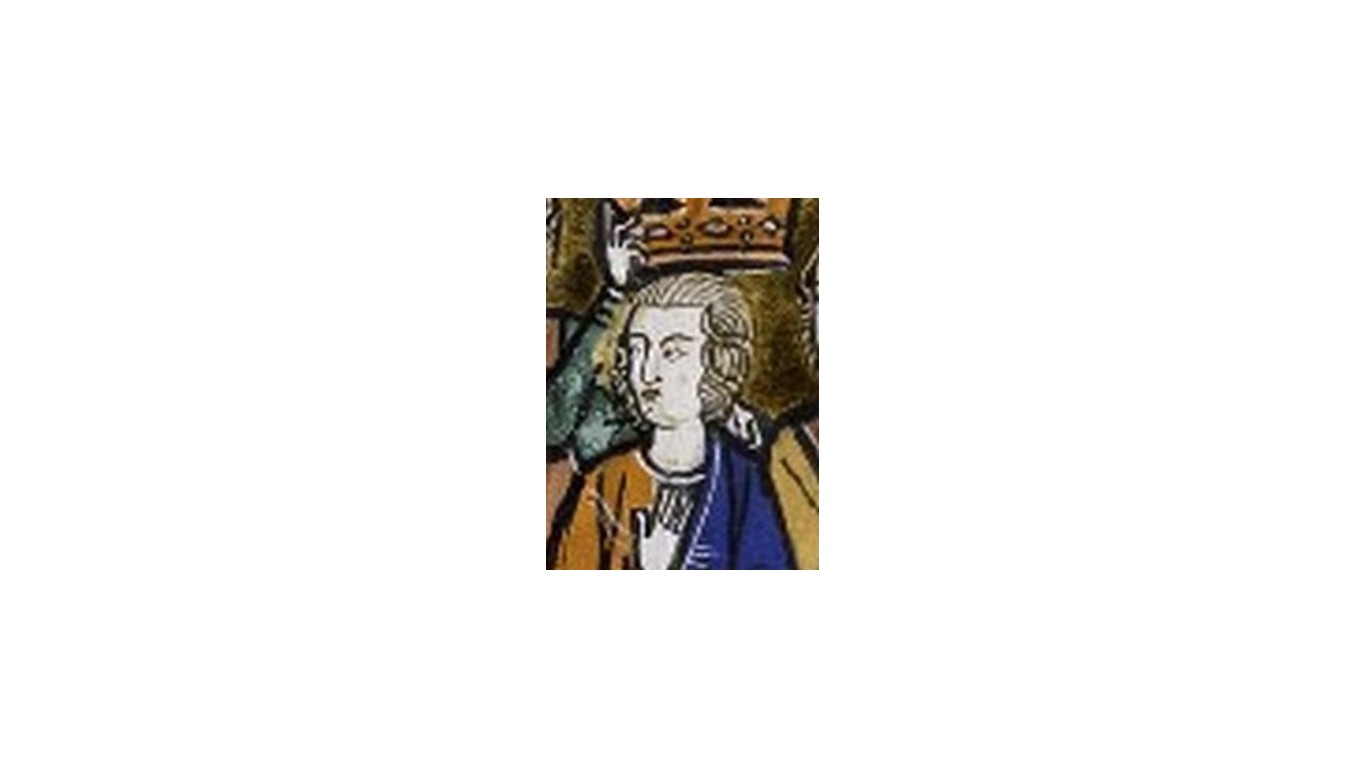
Baldwin III
> Died:1162
Baldwin III was the fifth Latin king of Jerusalem, ruling during the Second Crusade. He was well-respected as a leader but that didn’t stop him from being poisoned, possibly by a Syrian Orthodox doctor who was sent to him by the Count of Tripoli.
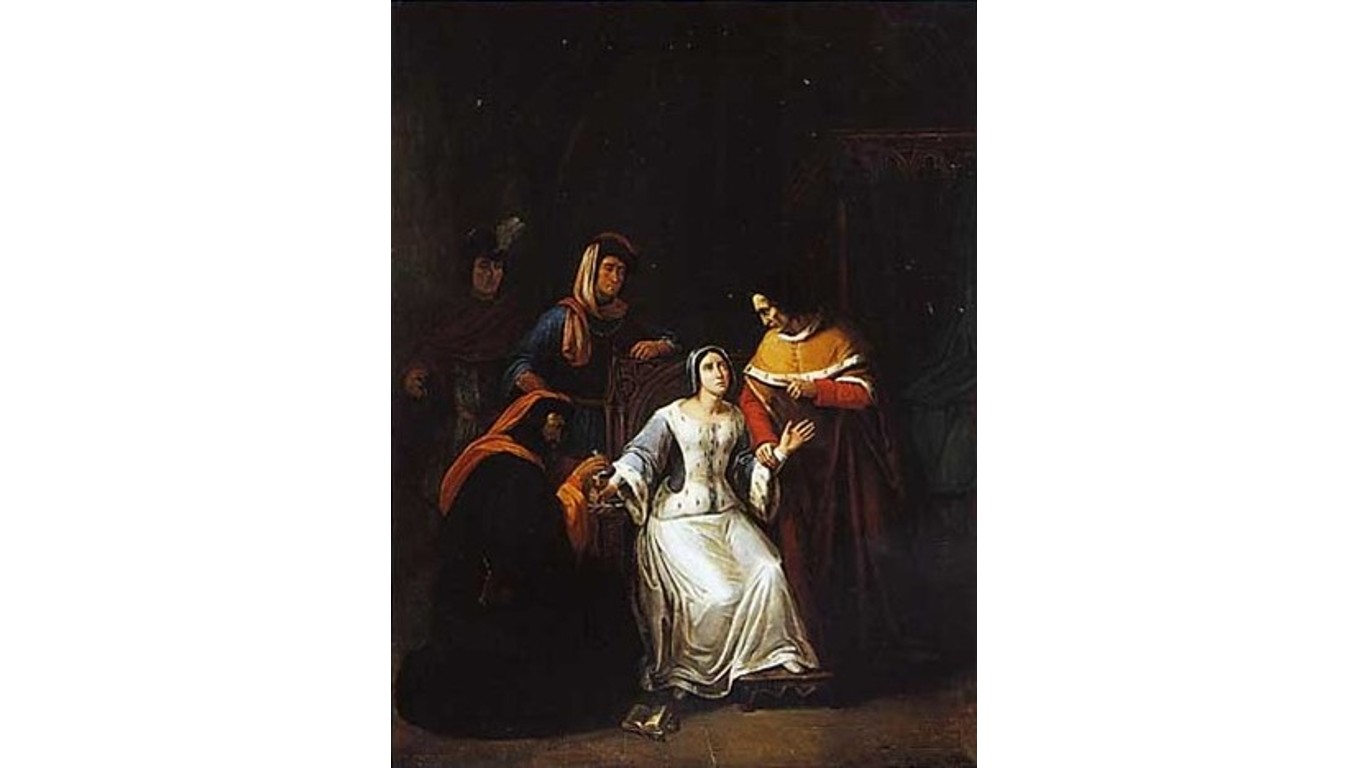
Blanche of Bourbon
> Died:1361
Blanche of Bourbon was the first wife of King Peter of Castile. As he was already in love with his mistress, he abandoned Blanche just days after their wedding and had her imprisoned for years. She eventually perished, and some historians of the time recorded that the king had her killed by means of herbal poison.
[in-text-ad-2]
Louis of Durazzo
> Died:1362
Louis of Durrazo was the Count of Gravina during power struggles in the court of Naples that led to the beheading of his older brother. He was imprisoned multiple times for inciting rebellions against Queen Johanna I of Naples, and eventually poisoned while imprisoned in the Castel dell’Ovo.
Robert IV of Artois
> Died:1387
Robert IV, son of the Count of Eu, inherited his father’s title when his father died. He never learned of this, however, as he was visiting Naples at the time of his father’s death and was poisoned there while staying at the Castel dell’Ovo. The culprit was his wife’s sister Margaret, Queen Regent of Naples.
[in-text-ad]
Dmitry Shemyaka
> Died:1453
In what was akin to real-life a Game of Thrones, Dmitry Shemyaka, along with many of his royal family members, was embroiled in a vicious power struggle for control of Moscow. He had his cousin, the Grand Prince of Moscow Vasily II, blinded in 1446. Dmitry was eventually poisoned while eating chicken, the cook having been bribed at the orders of Vasily II, who remained sovereign until his own death.

Giovanni Pico della Mirandola
> Died:1494
The mysterious death of the great Florentine Renaissance philosopher Giovanni Pico della Mirandola may have remained a mystery if his body hadn’t been exhumed in 2007. Scientists who examined the bones of Mirandola and his friend Angelo Poliziano, who died at the same time, found toxic levels of arsenic in both skeletons. They presume that a member of the ruling Medici family may have orchestrated the poisoning.

Juan Ponce de León
> Died:1521
After participating in multiple expeditions to the New World, Spanish conquistador Juan Ponce de León became governor of Puerto Rico and grew rich as a plantation owner. When he attempted to start a Spanish colony in what is now Florida, however, the indigenous Calusa people wounded him with a poisoned arrow. He escaped to Cuba, where he died from the wound.
[in-text-ad-2]
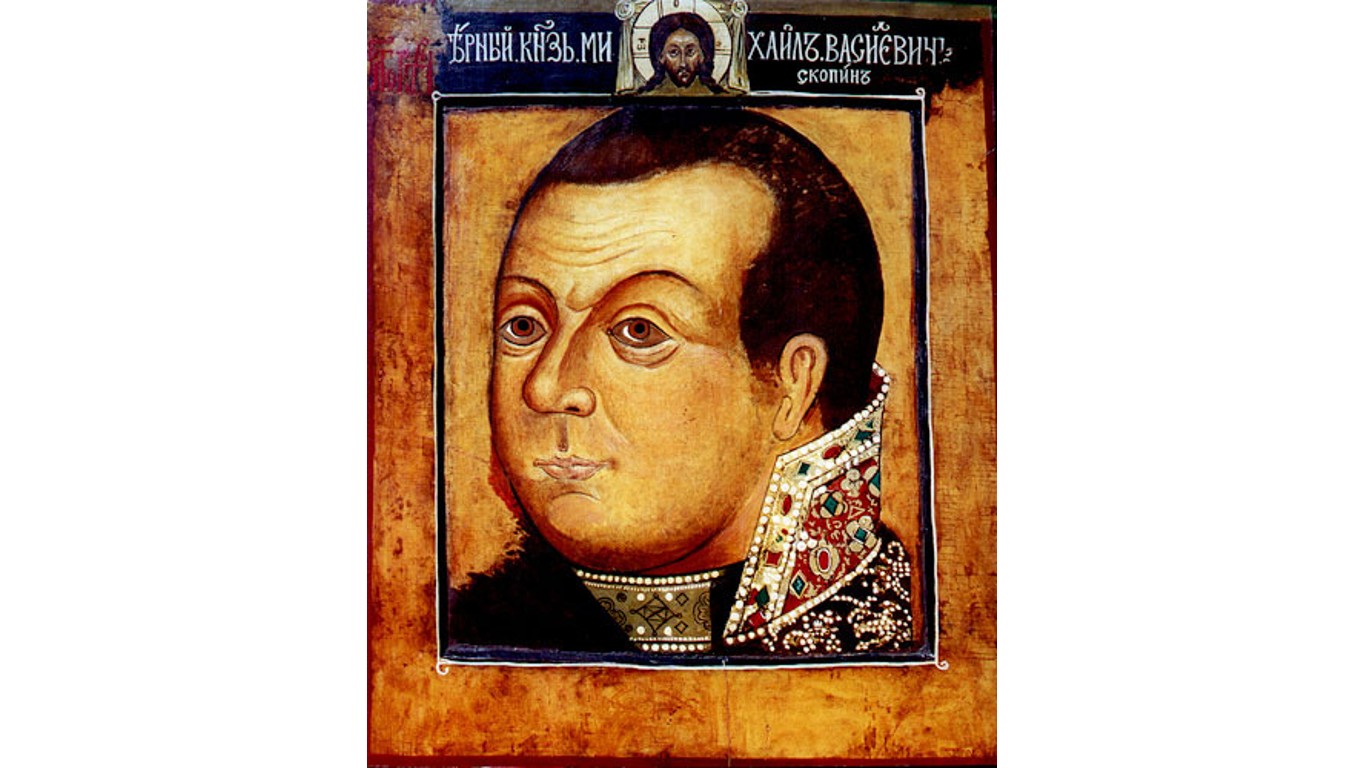
Mikhail Skopin-Shuisky
> Died:1610
A successful Russian military commander, Prince Mikhail Skopin-Shuisky worked tirelessly to cement the power of his cousin (the new tsar) Vasili IV. He died mysteriously at age 23, after drinking a glass of wine at a baptism. Vasili’s younger brother Dmitri, who saw Mikhail as a threat to his chances of succession, may have had him poisoned, although some sources point to the tsar himself.
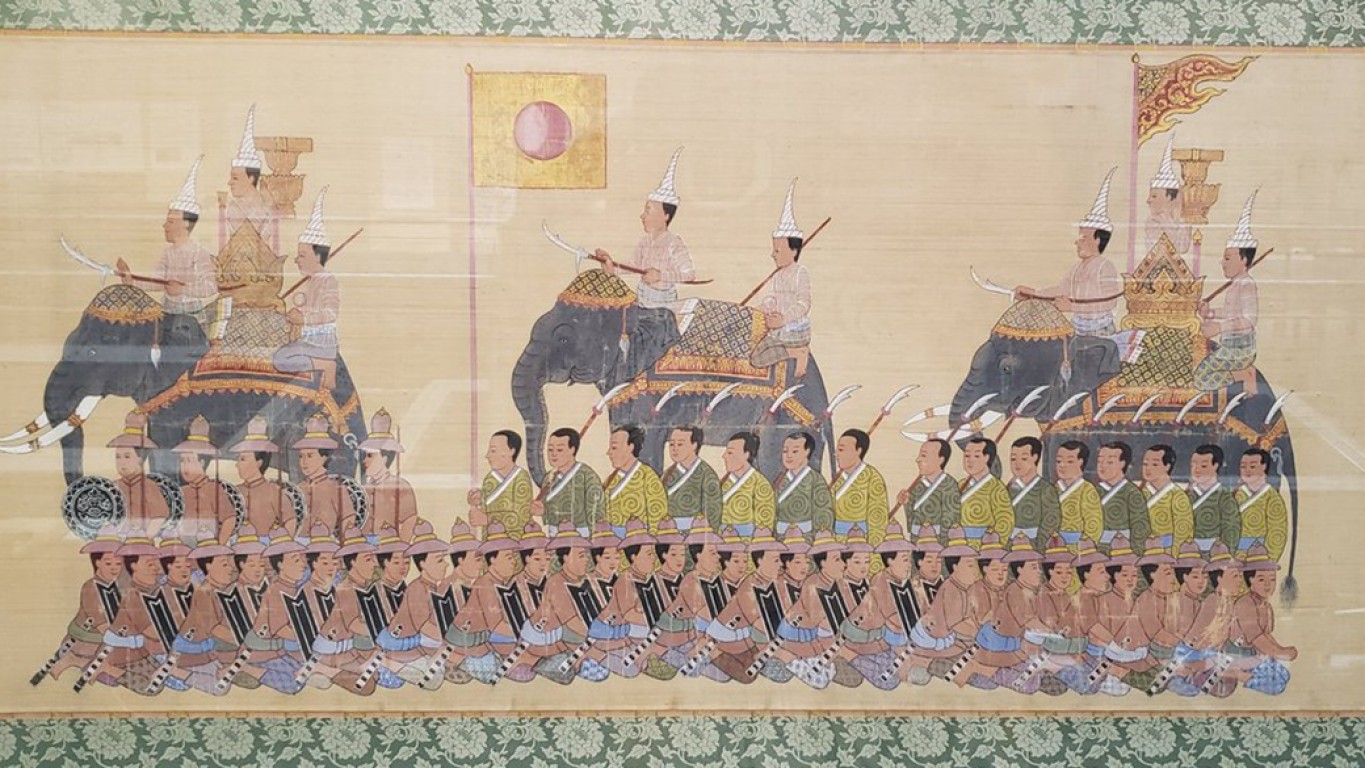
Yamada Nagamasa
> Died:1630
After gaining considerable power in the Siamese kingdom of Ayutthaya, Japanese explorer Yamada Nagamasa was head of a Japanese enclave within the kingdom. When he objected to a coup headed by usurper Prasat Thong, Thong had him poisoned and became the next King of Siam.
[in-text-ad]

Olive Thomas
> Died:1920
A promising Broadway and silent film star, Olive Thomas starred in 20 silent films before her life was cut short as she vacationed in Paris. After a late night out with her husband, Olive went to the bathroom seeking headache or sleeping medication and accidentally ingested a large dose of her husband’s topical syphilis medication instead. The mercury bichloride solution caused kidney failure and she died five days later.
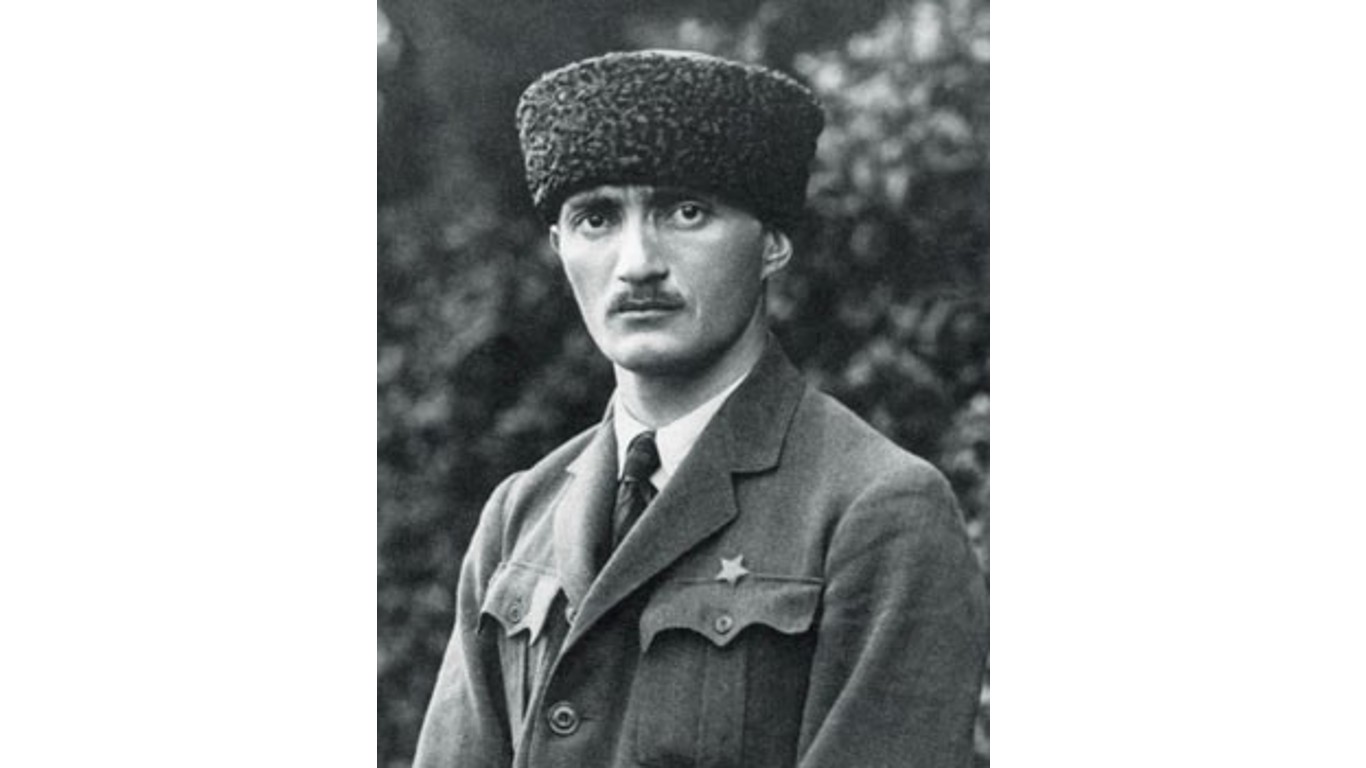
Nestor Lakoba
> Died:1936
A Communist leader of Abkhazia, a disputed area currently within the country of Georgia, Nestor Lakoba fought to maintain Abkhaz independence during the formation of the U.S.S.R. He was poisoned by the head of Soviet secret services, Lavrenti Beria, who had an interest in consolidating power over Georgia.
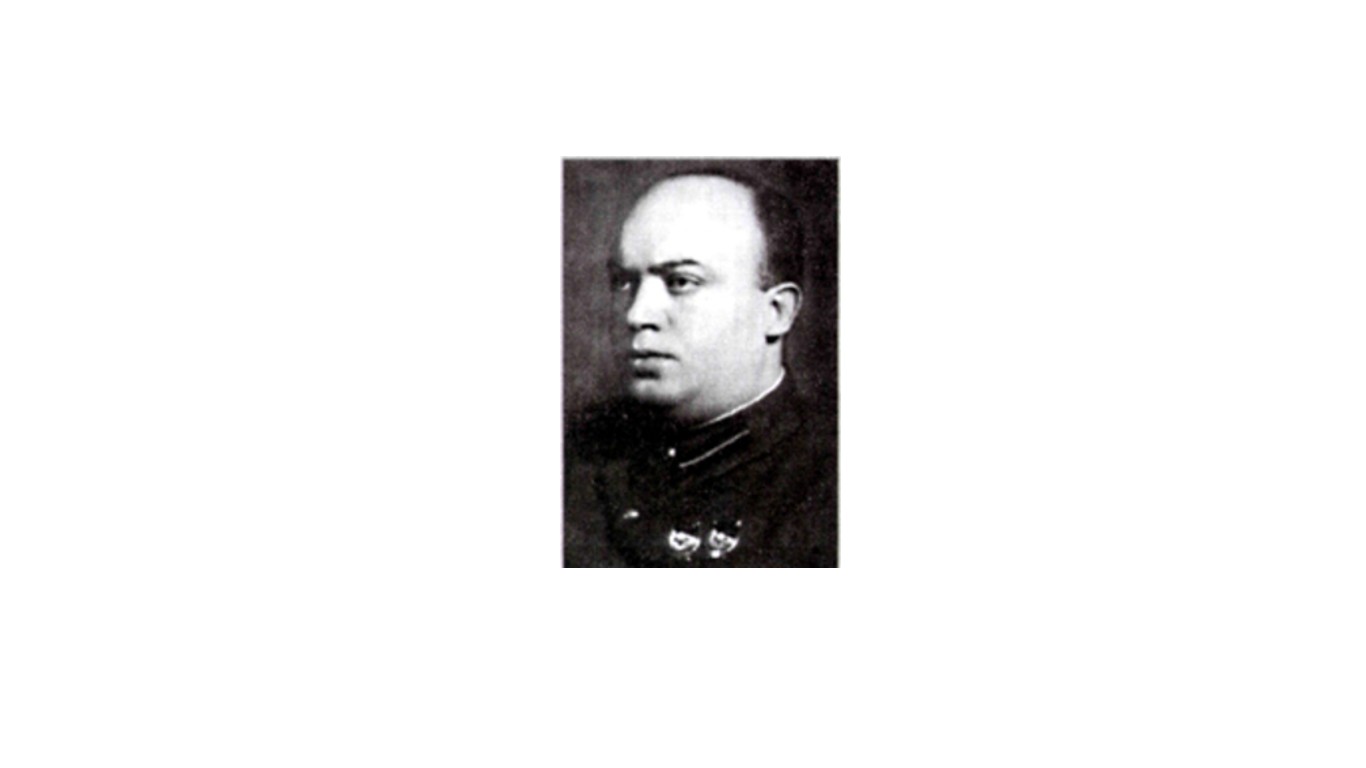
Abram Slutsky
> Died:1938
Abram Slutsky was a Soviet official who engaged in international espionage during a time when the government was eliminating opponents of Stalin. He fell victim to the Great Purge and was poisoned – possibly with hydrogen cyanide – at orders of the new head of secret services.
[in-text-ad-2]
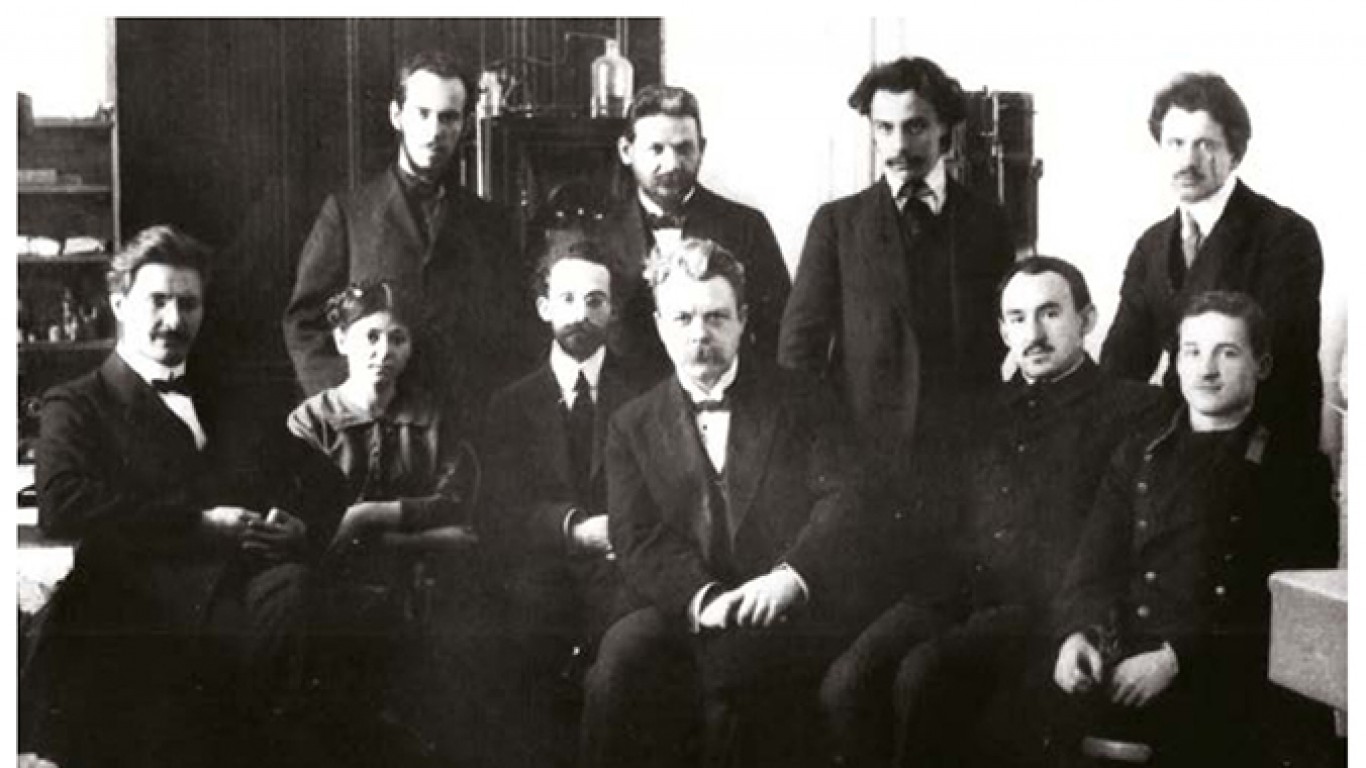
Nikolai Koltsov
> Died:1940
Nikolai Koltsov was an esteemed Russian biologist and geneticist during a Marxist regime that rejected the field of genetics by claiming that it supported fascism, racism, and eugenics. He died unexpectedly in 1940, poisoned by the Soviet secret services.
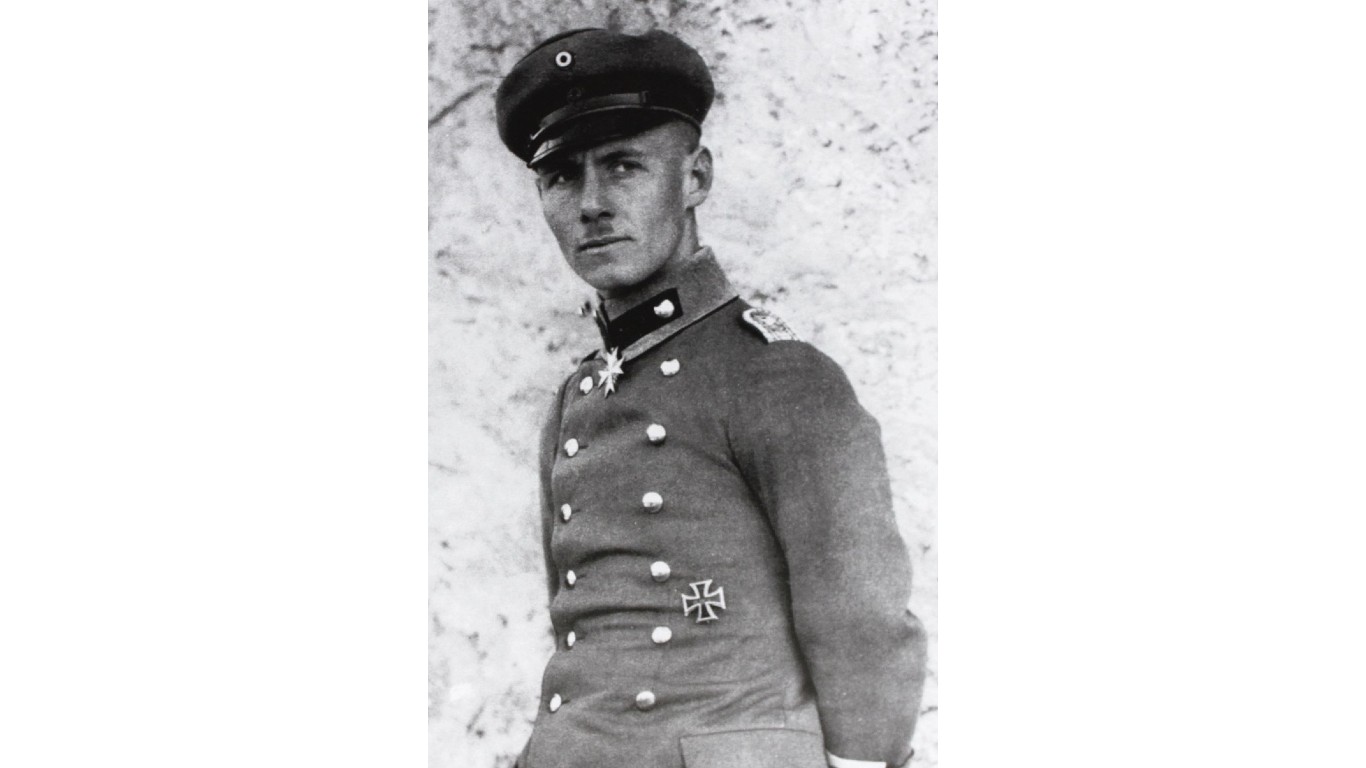
Erwin Rommel
> Died:1944
A decorated German general who served in both World Wars, Erwin Rommel was implicated in the July 20 assassination attempt on Adolph Hitler. Given the options to commit suiсide and be spared public scorn, or to go on trial – which would disgrace his family and endanger his staff – he opted to commit suiсide by cyanide.
[in-text-ad]
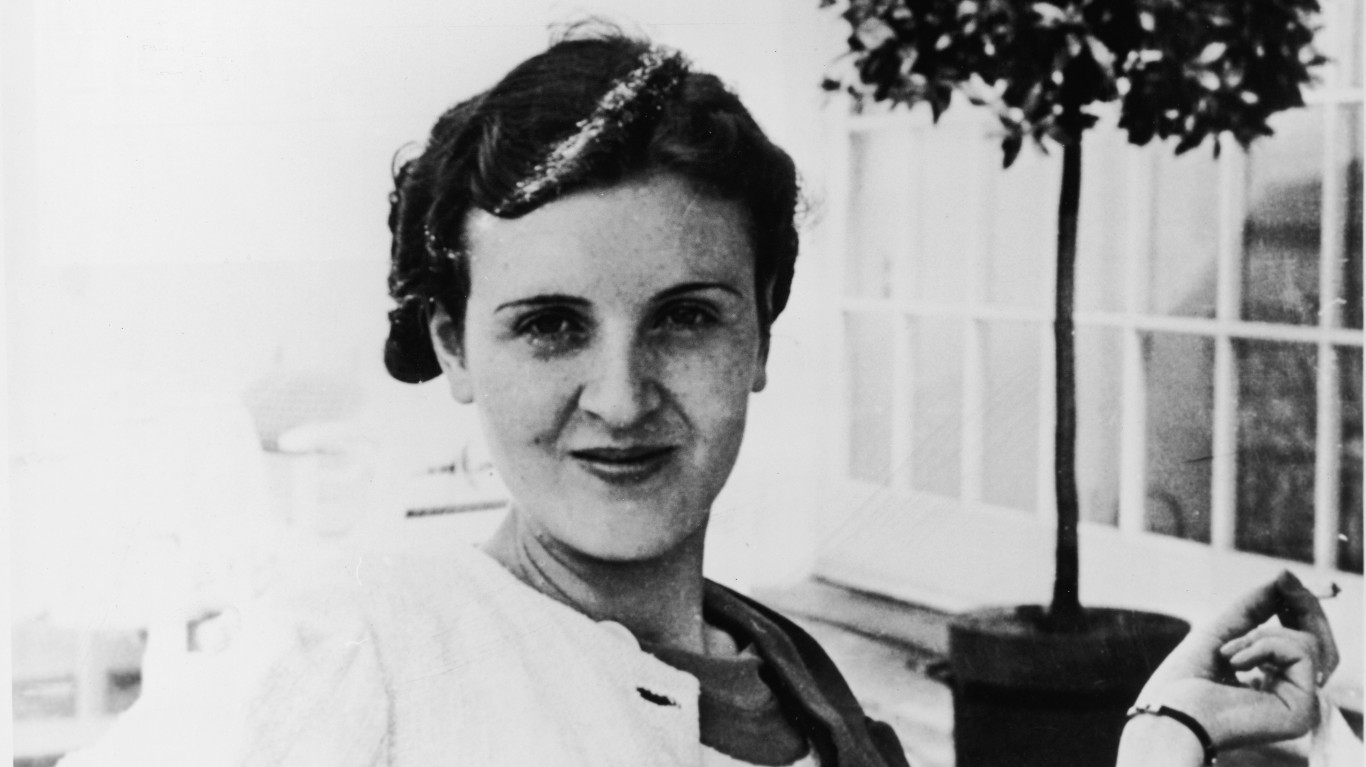
Eva Braun
> Died:1945
The companion (and briefly the wife) of German dictator Adolph Hitler, Eva Braun accompanied her husband to the grave as Soviet forces closed in on Berlin near the end of WWII. She committed suiсide by cyanide capsule as her husband shot himself in the head.
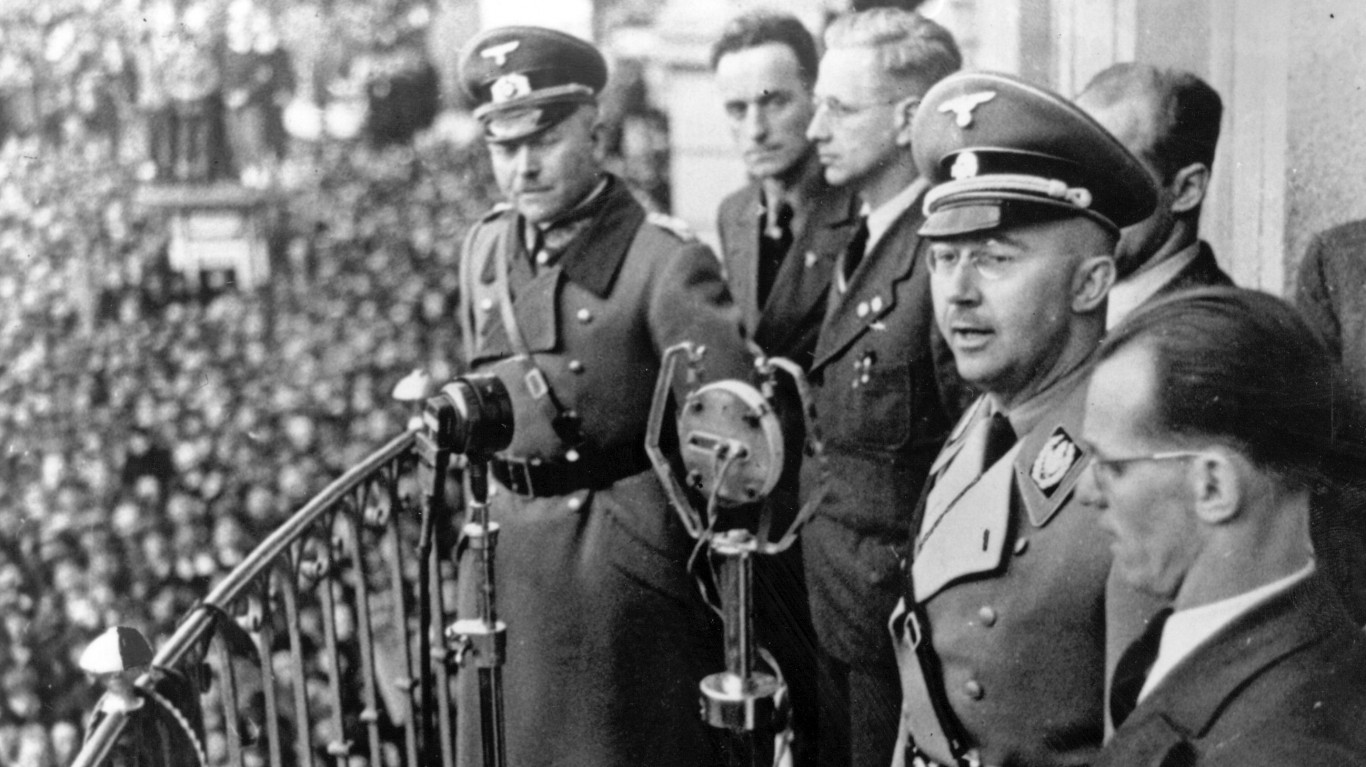
Heinrich Himmler
> Died:1945
Nazi officer and architect of the Holocaust, Heinrich Himmler oversaw the genocidal programs and concentration camps that targeted Jews, Romani, and other minorities during WWII. Upon being captured by the British, he committed suiсide by biting into a cyanide capsule and died within 15 minutes.

Hermann Göring
> Died:1946
Commander of the Nazi Luftwaffe, Hermann Göring was convicted of war crimes during the Nuremburg Trials and was sentenced to hanging. He requested to be shot instead, but as his request was denied, he committed suiсide by ingesting cyanide the night before he was scheduled to hang.
[in-text-ad-2]
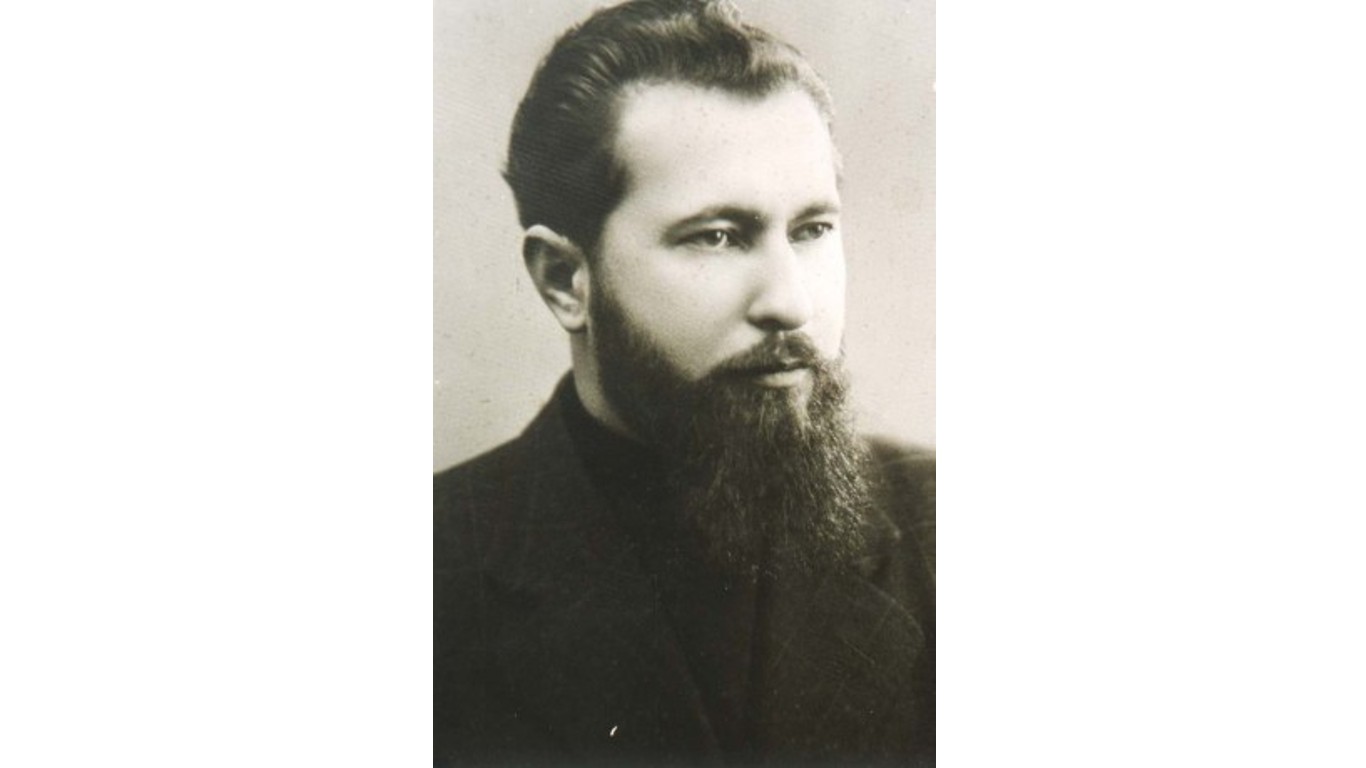
Theodore Romzha
> Died:1947
A bishop of the Ruthenian Catholic Church, Theodore Romzha lived in what is now Ukraine during Nazi then Soviet occupation. When the Soviet Army invaded his parish and attempted to force his allegiance to the Russian Orthodox Church, he refused. He was assassinated on orders from Nikita Khrushchev, having been poisoned by a nurse who injected him with curare.

Alan Turing
> Died:1954
A famous British mathematician and computer scientist, Alan Turing played a crucial role in translating encoded German messages to help the Allies win multiple battles in WWII. His death by cyanide poisoning has been ruled a suiсide, although many speculate that it was accidental, as Turing was known to use potassium cyanide in his home lab.
[in-text-ad]
Stepan Bandera
> Died:1959
A Ukrainian Nationalist politician, Stepan Bandera fought against the Polish and Soviet states and was viewed as a terrorist by both. He died in Munich after collapsing on the street. His death was ruled murder by cyanide gas poisoning, and a KGB defector was charged and imprisoned for the crime.
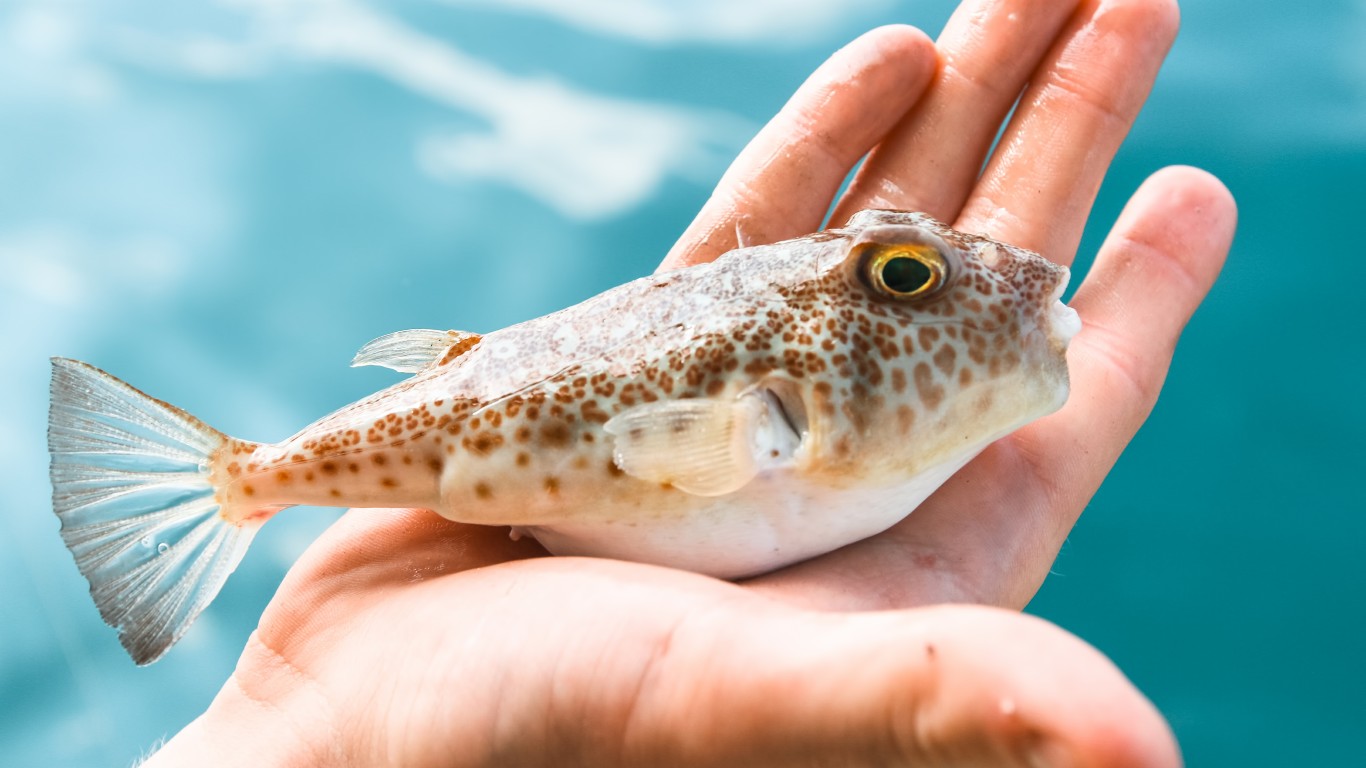
Bandō Mitsugorō VIII
> Died:1975
One of the most famous kabuki actors in Japan for over 40 years, Bandō Mitsugorō VIII died eight hours after he purposely ate four portions of highly toxic pufferfish liver at a restaurant, claiming that he could withstand the poison.
Georgi Markov
> Died:1978
A Bulgarian writer and dissident, Georgi Markov lived in London, where he was openly critical of his country’s communist regime. While waiting for a bus one afternoon, he felt a slight sting on his thigh. He fell ill that evening and died four days later. An autopsy found that he had been injected with a nearly microscopic pellet that contained an unknown poison.
[in-text-ad-2]

Ibn al-Khattab
> Died:2002
A Sunni jihadi fighter, Ibn al-Khattab fought against Russia in both the First and Second Chechan Wars. He died after handling a poisoned letter given to him by a courier who had been hired by the Russian secret services.
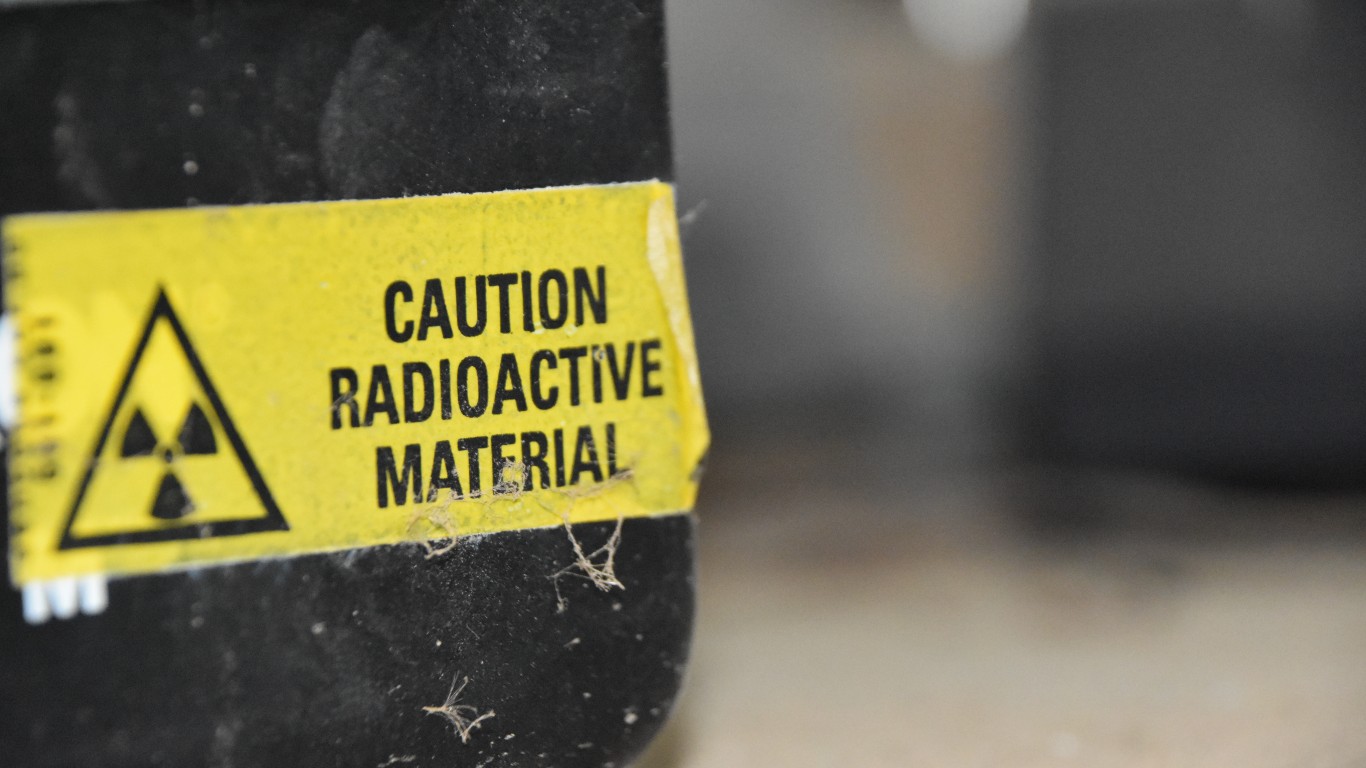
Roman Tsepov
> Died:2004
A Russian businessman with ties to both Vladimir Putin and organized crime, Roman Tsepov was the target of five unsuccessful assassination attempts before he was finally poisoned in 2004 by a radioactive agent. Some Russian reports say he died from ingesting a large dose of a drug used to treat leukemia patients.
[in-text-ad]
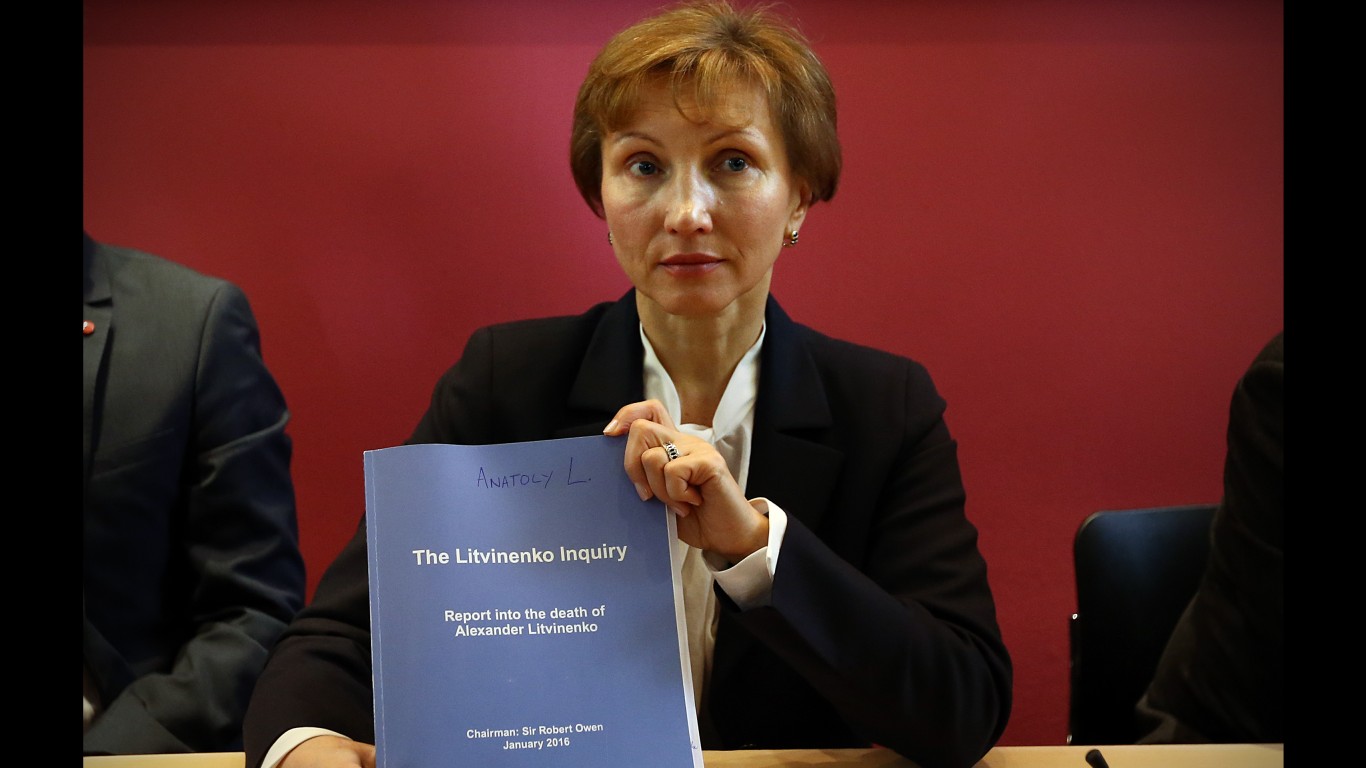
Alexander Litvinenko
> Died:2006
A former Russian secret service officer, Litvinenko had publicly accused the Russian government of multiple acts of terrorism and was living in asylum in England. He fell ill in November of 2006 and died three weeks later, poisoned by radioactive polonium-210. In 2021, the European Court of Human Rights found that Russia was responsible for his death.

Garnett Spears
> Died:2014
A five-year-old boy whose mother was diagnosed with Munchausen syndrome by proxy, Garnett Spears died from brain swelling due to salt poisoning. His mother, who had been putting salt in his feeding tube since infancy, was convicted of his murder.

Slobodan Praljak
> Died:2017
A retired general from the Croatian Army, Praljak was convicted of war crimes against the Bosnian Muslim population in a criminal tribunal. He announced in the courtroom that he rejected the guilty verdict, drank a bottle of cyanide, and died a few hours later.
[in-text-ad-2]

Dawn Sturgess
> Died:2018
After a Russian spy and his daughter were poisoned in England (they survived), the Novichok nerve agent used in their attempted murder was found in a trash can by a man foraging for useful items. As it was in a perfume bottle, he gave it to his girlfriend, Dawn Sturgess, who sprayed it on her wrist. She fell ill within 15 minutes and later died at the hospital.
Start by taking a quick retirement quiz from SmartAsset that will match you with up to 3 financial advisors that serve your area and beyond in 5 minutes, or less.
Each advisor has been vetted by SmartAsset and is held to a fiduciary standard to act in your best interests.
Here’s how it works:
1. Answer SmartAsset advisor match quiz
2. Review your pre-screened matches at your leisure. Check out the advisors’ profiles.
3. Speak with advisors at no cost to you. Have an introductory call on the phone or introduction in person and choose whom to work with in the future
Thank you for reading! Have some feedback for us?
Contact the 24/7 Wall St. editorial team.